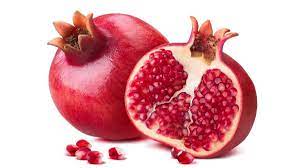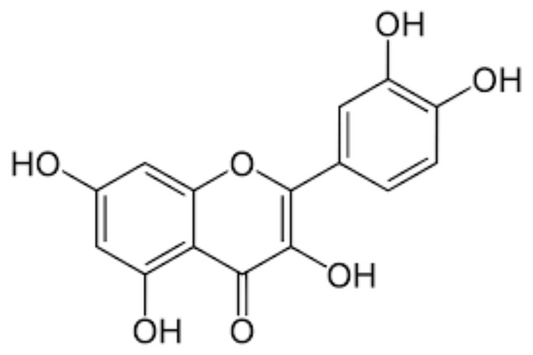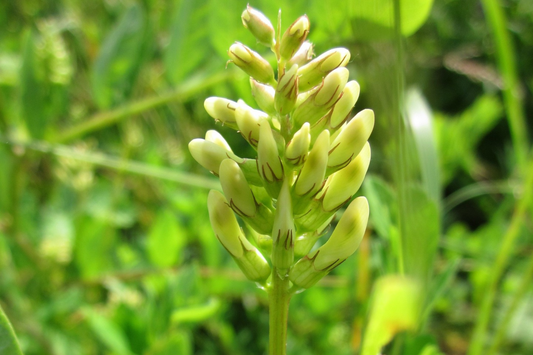Benefit Tips
- Older adults with mild cognitive impairment showed improved cognitive function after lion's mane supplementation, with varied percentage improvements depending on the metric.
- Cognitive Function: In a study involving older adults with mild cognitive impairment, those who consumed lion's mane extract daily for 16 weeks showed a significant increase of up to 23% in scores on the cognitive function scale compared to the placebo group.
- Neuroprotection and Nerve Growth: Lion's mane contains compounds that stimulate the synthesis of Nerve Growth Factor (NGF). Animal studies have shown that lion's mane extract can speed up the recovery of damaged nerves, with a 20-40% acceleration in nerve regeneration rates in certain experimental setups.
- Mood and Anxiety: In a 4-week study on menopausal women, participants who consumed cookies containing lion's mane extract reported a significant reduction of 10-20% in feelings of irritation and anxiety compared to the placebo group.
- Antioxidant Properties: In-vitro studies have shown that lion's mane has potent antioxidant activity, which can help protect against cellular damage. Extracts of lion's mane showed a 50-70% reduction in oxidative stress markers in certain experimental conditions.
- Anti-Inflammatory Effects: Animal studies indicate that lion's mane extract has the potential to reduce inflammation. Inflammation markers were lowered by up to 25% in some models after the administration of lion's mane.
- Immune System Boost: Lion's mane may enhance the immune system by increasing the activity of intestinal immune cells. In animal studies, lion's mane supplementation led to a 30-60% increase in certain immune cell activities.
- Gastrointestinal Health: Some research suggests that lion's mane can protect against stomach ulcers. In animal models, ulcers induced by alcohol were reduced in size by up to 50% with lion's mane treatment.
- Cancer Prevention and Treatment: Several studies have investigated lion's mane's potential anti-cancer properties. For instance, in cell studies, lion's mane extract led to a 50-69% reduction in the growth rate of certain cancer cells.
Unlocking the Benefits of Lion’s Mane: The Anti-Aging Compound You Need to Know About
Aging is inevitable, but everyone wants to stay healthy and live a long, fulfilling life. With the emergence of anti-aging supplements, people are beginning to take note of the benefits of natural remedies to prevent the signs of aging. One such supplement that has been gaining popularity in recent years is Lion's Mane, a medicinal mushroom that has been used in traditional Chinese medicine for centuries.
Lion's Mane (Hericium erinaceus) is a type of mushroom that is native to North America, Europe, and Asia. It gets its name from its unique appearance, which resembles a lion's mane. In traditional Chinese medicine, it is known as "the mushroom of immortality" due to its reputation for promoting longevity and overall health.
One of the main reasons why Lion's Mane is becoming a popular anti-aging supplement is because of its ability to stimulate the growth of brain cells. Lion's Mane contains two compounds, hericenones and erinacines, which have been shown to promote the production of nerve growth factors (NGFs).1 NGFs are proteins that help to promote the growth and survival of neurons in the brain and central nervous system. By promoting the growth of new brain cells, Lion's Mane may help to slow down age-related cognitive decline and improve memory function.
In addition to its brain-boosting benefits, Lion's Mane has also been found to have anti-inflammatory and antioxidant properties.2-4 Chronic inflammation is believed to play a key role in many age-related diseases, including Alzheimer's, Parkinson's, and heart disease. By reducing inflammation in the body, Lion's Mane may help to protect against these diseases and slow down the aging process.
Lion's Mane has also been found to have anti-cancer properties. In laboratory studies, extracts from Lion's Mane mushrooms have been found to inhibit the growth of cancer cells and prevent the formation of new tumours. 5,6 While more research is needed to determine its effectiveness in humans, the early results are promising.
Another benefit of Lion's Mane is its ability to protect against digestive ulcers. Ulcers are painful sores that can form in the lining of the stomach or small intestine, and they are often caused by inflammation and oxidative stress. Studies have found that Lion's Mane extracts can help to protect against the development of these ulcers by reducing inflammation and oxidative stress in the digestive tract.7,8
Lion's Mane may also help to lower the risk of heart disease. In one study, rats fed a high-cholesterol diet were given Lion's Mane extracts, and their cholesterol and triglyceride levels were significantly reduced. The researchers believe that Lion's Mane may improve fat metabolism, which could help to prevent the build-up of cholesterol in the bloodstream.9
Finally, Lion's Mane may also be helpful for managing diabetes. One study found that rats given Lion's Mane extracts had lower blood sugar levels than control rats. The researchers believe that this is because Lion's Mane may help to produce insulin by the pancreas.10
In conclusion, Lion's Mane is a natural supplement that has a lot of potential for promoting healthy aging. Its ability to promote the growth of brain cells, reduce inflammation and oxidative stress, fight cancer, protect against digestive ulcers, and lower the risk of heart disease and diabetes make it a versatile supplement that can benefit many aspects of your health. While more research is needed to fully understand its effects in humans, the early studies are promising, and Lion's Mane is certainly a supplement worth considering if you are looking for a natural way to support your overall health and well-being.
References:
- Ma BJ, Shen JW, Yu HY, Ruan Y, Wu TT, Zhao X. Hericenones and erinacines: stimulators of nerve growth factor (NGF) biosynthesis in Hericium erinaceus. Mycology. 2010 Jun 23;1(2):92-8.
- Kushairi N, Phan CW, Sabaratnam V, David P, Naidu M. Lion’s mane mushroom, Hericium erinaceus (Bull.: Fr.) Pers. suppresses H2O2-induced oxidative damage and LPS-induced inflammation in HT22 hippocampal neurons and BV2 microglia. Antioxidants. 2019 Aug 1;8(8):261.
- Xie G, Tang L, Xie Y, Xie L. Secondary Metabolites from Hericium erinaceus and Their Anti-Inflammatory Activities. Molecules. 2022 Mar 27;27(7):2157.
- Qin M, Geng Y, Lu Z, Xu HY, Shi JS, Xu X, Xu ZH. Anti-inflammatory effects of ethanol extract of lion’s mane medicinal mushroom, hericium erinaceus (agaricomycetes), in mice with ulcerative colitis. International Journal of Medicinal Mushrooms. 2016;18(3).
- Kim SP, Nam SH, Friedman M. Hericium erinaceus (Lion’s Mane) mushroom extracts inhibit metastasis of cancer cells to the lung in CT-26 colon cancer-tansplanted mice. Journal of agricultural and food chemistry. 2013 May 22;61(20):4898-904.
- Wang M, Zhang Y, Xiao X, Xu D, Gao Y, Gao Q. A polysaccharide isolated from mycelia of the lion’s mane medicinal mushroom Hericium erinaceus (Agaricomycetes) induced apoptosis in precancerous human gastric cells. International Journal of Medicinal Mushrooms. 2017;19(12).
- Wang M, Konishi T, Gao Y, Xu D, Gao Q. Anti-gastric ulcer activity of polysaccharide fraction isolated from mycelium culture of lion's mane medicinal mushroom, Hericium erinaceus (higher Basidiomycetes). International journal of medicinal mushrooms. 2015;17(11).
- Qin M, Geng Y, Lu Z, Xu HY, Shi JS, Xu X, Xu ZH. Anti-inflammatory effects of ethanol extract of lion’s mane medicinal mushroom, hericium erinaceus (agaricomycetes), in mice with ulcerative colitis. International Journal of Medicinal Mushrooms. 2016;18(3).
- Jang HS, Yoon KN. The Antihyperlipidemic Effect of Lion's Mane Mushroom (Hericium erinaceus) in Hyperlipidemic Rats Induced by High Fat and Cholesterol Diet. Korean Journal of Clinical Laboratory Science. 2017;49(3):263-70.
- Liang B, Guo Z, Xie F, Zhao A. Antihyperglycemic and antihyperlipidemic activities of aqueous extract of Hericium erinaceus in experimental diabetic rats. BMC complementary and alternative medicine. 2013 Dec;13(1):1-7.




